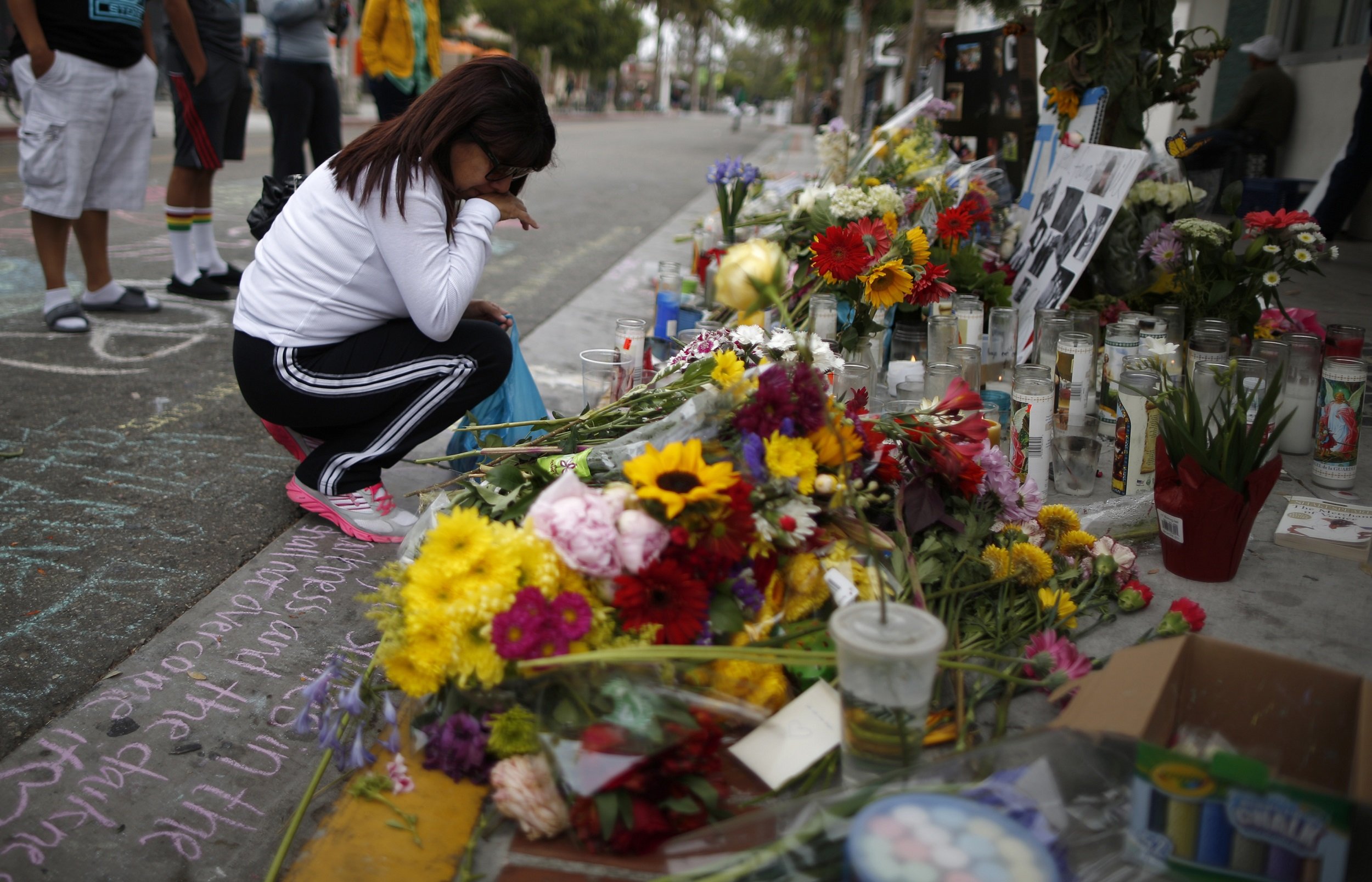
Friday night's shooting near the University of California, Santa Barbara, provoked the usual search for meaning and motives, but with a twist: lone gunman Elliot Rodger had left behind a chilling YouTube video expressing his rage at the women who had rejected him and swearing revenge. "I don't know why you girls aren't attracted to me, but I will punish you all for it," he said in the clip.
So the conversation proceeded: What motivated the killer? Was it misogyny or, as is usually the case in mass murder, mental illness? "Too many people seeing Santa Barbara tragedy as misogyny," The Washington Post's Karen Tumulty tweeted. "It's about mental illness."
But those aren't mutually exclusive categories, and they never have been. Rodger follows a long tradition of mass murderers motivated at least in part by a hatred of women.
In fact, it was the same combination that, prior to the 2007 Virginia Tech massacre, brought the deadliest shooting in U.S. history.
On October 16, 1991, George Hennard rammed his pickup truck through the front window of a Luby's Cafeteria in Killeen, Texas, and opened fire during the lunchtime rush. Wielding two semiautomatic pistols, the unemployed merchant seaman shouted about exacting "payback" on the people of Bell County and then, as first responders moved in, shot himself in the head.
When it was over, 24 people were dead and 20 more wounded.
The majority of them were women. That wasn't accidental. Hennard, like Rodger, harbored severe hostility toward the women who had, in his warped view, rejected or mistreated him.
In a letter sent to a female neighbor some months before the shooting, he promised that he would "prevail over the female vipers in those two rinky-dink towns in Texas." Later, an acquaintance recalled that he referred to women as "snakes" and ranted about the women who had "given him problems."
There was no YouTube in 1991, nor was a manifesto discovered in the wake of the tragedy. But Hennard's misogyny was bare and frightening. Survivors of the carnage recalled that he seemed to pass over male customers at Luby's to shoot women purposefully and point-blank. "All women of Killeen and [neighboring city] Belton are vipers!" he reportedly shouted as he carried out his revenge.
Over time, that massacre has faded from popular memory, replaced by the endless string of mass shootings that rivet the public every several months.
Statistically, they are nearly always carried out by white men. (The perpetrator of any mass shooting event is 98 percent likely to be male.) Often, misogyny or sexual frustration plays some role.
Virginia Tech shooter Seung-Hui Cho, for instance, stalked and harassed two female students well before carrying out the worst school shooting in American history. Columbine killer Dylan Klebold wrote extensively about his romantic loneliness and a girl he had a crush on in his private diary. Adam Lanza, who murdered 20 children and six adults at Connecticut's Sandy Hook Elementary School in 2012, had a Word document on his computer explaining "why females are inherently selfish."
Even Timothy McVeigh, who carried out the Oklahoma City bombing in 1995, complained about his sexual frustrations and a woman who had rejected him.
Misogyny—and the sense of entitlement that comes with it—kills. Sometimes in private, in acts of domestic violence that occur every week (women are six times more likely to be killed by their partner than men, a recent study found), and sometimes in public, in harrowing explosions of mass murder.
Absent major cultural shifts, it will kill again and again.
Uncommon Knowledge
Newsweek is committed to challenging conventional wisdom and finding connections in the search for common ground.
Newsweek is committed to challenging conventional wisdom and finding connections in the search for common ground.
About the writer
Zach Schonfeld is a senior writer for Newsweek, where he covers culture for the print magazine. Previously, he was an ... Read more
To read how Newsweek uses AI as a newsroom tool, Click here.








